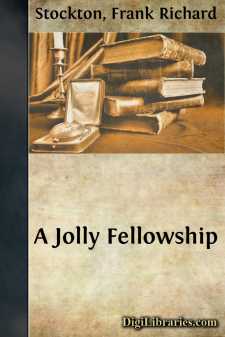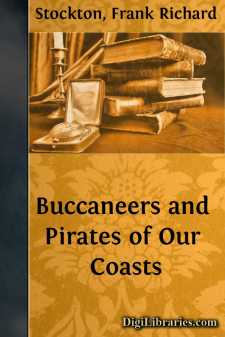Categories
- Antiques & Collectibles 13
- Architecture 36
- Art 48
- Bibles 22
- Biography & Autobiography 816
- Body, Mind & Spirit 145
- Business & Economics 28
- Children's Books 18
- Children's Fiction 14
- Computers 4
- Cooking 94
- Crafts & Hobbies 4
- Drama 346
- Education 58
- Family & Relationships 59
- Fiction 11831
- Foreign Language Study 3
- Games 19
- Gardening 17
- Health & Fitness 34
- History 1378
- House & Home 1
- Humor 147
- Juvenile Fiction 1873
- Juvenile Nonfiction 202
- Language Arts & Disciplines 89
- Law 16
- Literary Collections 686
- Literary Criticism 179
- Mathematics 13
- Medical 41
- Music 40
- Nature 179
- Non-Classifiable 1768
- Performing Arts 7
- Periodicals 1453
- Philosophy 66
- Photography 2
- Poetry 897
- Political Science 203
- Psychology 45
- Reference 154
- Religion 516
- Science 126
- Self-Help 86
- Social Science 82
- Sports & Recreation 34
- Study Aids 3
- Technology & Engineering 59
- Transportation 23
- Travel 463
- True Crime 29
Frank Richard Stockton
Frank Richard Stockton (1834-1902) was an American writer and humorist, best known for his short story "The Lady, or the Tiger?" which leaves readers with a tantalizingly ambiguous ending. His works often featured whimsical and fantastical elements, and he was celebrated for his wit and narrative inventiveness. Throughout his career, Stockton contributed to various magazines and authored numerous novels and story collections that captivated both children and adults.
Author's Books:
Sort by:
A TALE OF NEGATIVE GRAVITY My wife and I were staying at a small town in northern Italy; and on a certain pleasant afternoon in spring we had taken a walk of six or seven miles to see the sun set behind some low mountains to the west of the town. Most of our walk had been along a hard, smooth highway, and then we turned into a series of narrower roads, sometimes bordered by walls, and sometimes by...
more...
CHAPTER I. WE MAKE A START. I was sitting on the deck of a Savannah steam-ship, which was lying at a dock in the East River, New York. I was waiting for young Rectus, and had already waited some time; which surprised me, because Rectus was, as a general thing, a very prompt fellow, who seldom kept people waiting. But it was probably impossible for him to regulate his own movements this time, for his...
more...
AMOS KILBRIGHT: HIS ADSCITITIOUS EXPERIENCES. [This story is told by Mr. Richard Colesworthy, an attorney-at-law, in a large town in one of our Eastern States. The fact that Mr. Colesworthy is a practical man, and but little given, outside of his profession, to speculative theorizing, adds a weight to his statements which they might not otherwise possess.] In the practice of my profession I am in the...
more...
Chapter I When I was a boy I strongly desired to be a pirate, and the reason for this was the absolute independence of that sort of life. Restrictions of all sorts had become onerous to me, and in my reading of the adventures of the bold sea-rovers of the main, I had unconsciously selected those portions of a pirate's life which were attractive to me, and had totally disregarded all the rest. In...
more...
JOHN GAYTHER'S GARDEN The garden did not belong to John Gayther; he merely had charge of it. At certain busy seasons he had some men to help him in his work, but for the greater part of the year he preferred doing everything himself. It was a very fine garden over which John Gayther had charge. It extended this way and that for long distances. It was difficult to see how far it did extend, there...
more...
CHAPTER I TWO YOUNG PEOPLE, A SHIP, AND A FISH The month was September and the place was in the neighbourhood of Bridgetown, in the island of Barbadoes. The seventeenth century was not seventeen years old, but the girl who walked slowly down to the river bank was three years its senior. She carried a fishing-rod and line, and her name was Kate Bonnet. She was a bright-faced, quick-moving young person,...
more...
A man's birth is generally considered the most important event of his existence, but I truly think that what I am about to relate was more important to me than my entrance into this world; because, had not these things happened, I am of the opinion that my life would have been of no value to me and my birth a misfortune. My father, Joshua Cuthbert, died soon after I came to my majority, leaving me...
more...
POMONA'S TRAVELS This series of letters, written by Pomona of "Rudder Grange" to her former mistress, Euphemia, may require a few words of introduction. Those who have not read the adventures and experiences of Pomona in "Rudder Grange" should be told that she first appeared in that story as a very young and illiterate girl, fond of sensational romances, and with some...
more...
WINTER IN THE WOODS What can be more delightful, to a boy of spirit, than a day in the woods when there has been a good snow! If he also happens to have a good friend or two, and some good dogs (who are just as likely to be friends as his boy-companions), he ought to be much happier than an ordinary king. A forest is a fine place at any time, but when the ground is well covered with snow—especially...
more...
CHAPTER I. TREATING OF A NOVEL STYLE OF DWELLING HOUSE. For some months after our marriage, Euphemia and I boarded. But we did not like it. Indeed, there was no reason why we should like it. Euphemia said that she never felt at home except when she was out, which feeling, indicating such an excessively unphilosophic state of mind, was enough to make me desire to have a home of my own, where, except...
more...











